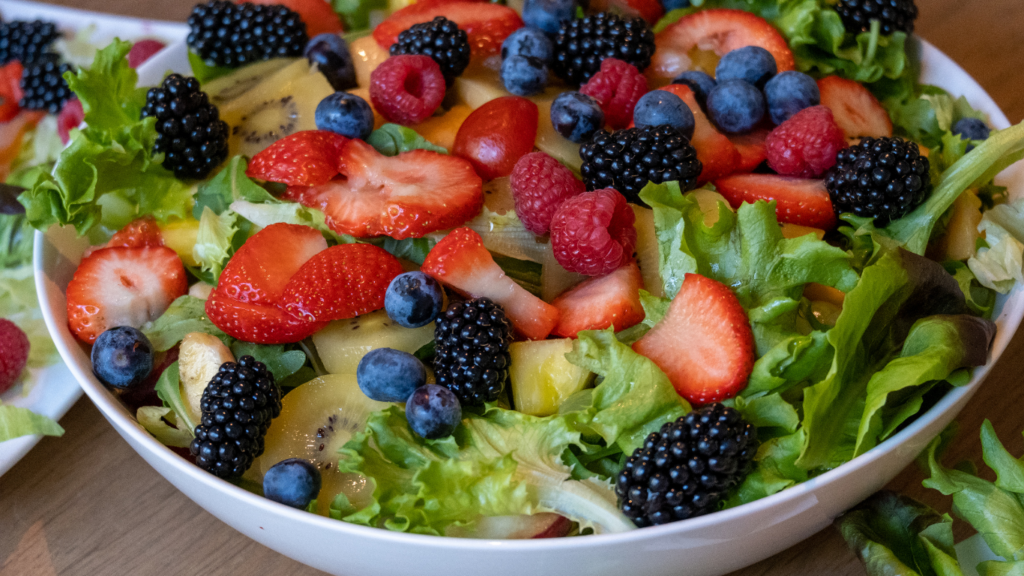Understanding Sports Nutrition for Vegans
Recognizing sports nutrition’s impact is vital for any athlete, vegan or not. Balanced intake of nutrients fuels performance and aids recovery.
Importance of Nutrition in Athletic Performance
- Proper nutrition affects every aspect of athletic performance.
- It supports energy levels, stamina, and recovery.
- Carbohydrates supply energy for high-intensity workouts, while proteins aid muscle repair.
- Fats, often overlooked, provide long-lasting energy.
- Essential vitamins and minerals, like iron and calcium, ensure optimal body functions.
- For vegan athletes, plant-based foods such as beans, nuts, and leafy greens serve as critical nutrient sources.
Challenges Faced by Vegan Athletes
Vegan athletes encounter unique nutritional challenges. Accessing adequate protein often requires thoughtful dietary planning since plant proteins can be less concentrated than animal sources.
Vitamin B12, typically found in animal products, necessitates supplementation or fortified foods. Iron absorption may be hindered due to plant compounds called phytates, affecting energy levels. Vigilance with meal planning ensures a balanced intake, helping vegan athletes meet their performance goals.
Essential Nutrients for Vegan Athletes
Meeting nutritional needs can be a challenge for vegan athletes, but it ensures peak performance and recovery. Adopting a plant-based diet with the right nutrients helps sustain energy, build muscles, and promote overall health.
Protein Sources and Requirements:
Protein remains a core element for muscle development. Vegan athletes can rely on sources like:
- beans
- lentils
- chickpeas
which contain high-quality amino acids. Soy-based products such as tofu and tempeh offer versatility and substantial protein content. Quinoa and buckwheat provide complete proteins, which means they contain all nine essential amino acids.
It’s important to consume a variety of these sources to meet daily protein requirements, which range from 1.2 to 2.0 grams per kilogram of body weight, depending on training intensity.
Iron and Calcium for Bone Health
Iron supports oxygen transportation and energy metabolism. While plant-based sources include lentils, spinach, and fortified cereals, they come with phytates that may hinder absorption.
Consuming vitamin C-rich foods like bell peppers or strawberries alongside iron sources enhances absorption. Calcium strengthens bones, with key sources being fortified plant milks, almonds, and broccoli. Balancing these nutrients is crucial for maintaining bone health and preventing fatigue-related injuries.
Omega-3 Fatty Acids for Recovery
Omega-3 fatty acids aid inflammation reduction and joint support, important for athletes post-training. Flaxseeds, chia seeds, and walnuts provide alpha-linolenic acid (ALA), a type of omega-3.
Conversion of ALA to the more beneficial eicosapentaenoic acid (EPA) and docosahexaenoic acid (DHA) isn’t efficient, so it’s advisable to consider microalgae supplements for more EPA and DHA intake. Regularly incorporating these sources can help optimize recovery and maintain cardiovascular health.
Designing a Balanced Vegan Meal Plan

Crafting a balanced vegan meal plan for athletes involves understanding nutrient requirements and ensuring diverse food choices. Considerations for pre and post-workout meals and hydration are crucial for performance and recovery.
Pre-Workout Nutrition
Before workouts, energy-dense meals support performance. I suggest incorporating carbohydrates like oats, bananas, and whole grain bread to provide quick energy. Adding a small amount of protein, such as almonds or a plant-based yogurt, helps maintain satiety.
Post-Workout Recovery Meals
After exercising, recovery meals replenish nutrients and repair muscles. I recommend combining protein sources with carbohydrates. For instance, a chickpea salad with quinoa delivers essential amino acids and replenishes glycogen stores. Including healthy fats from avocado or seeds enhances nutrient absorption.
Hydration Strategies for Athletes
Proper hydration is foundational. Athletes should monitor fluid intake, especially under strenuous conditions. I advise drinking water throughout the day and incorporating electrolytes from coconut water or plant-based sports drinks during intense sessions. Eating high-water-content fruits, like watermelon, also helps maintain hydration levels.
Popular Vegan Supplements for Athletes
Choosing the right vegan supplements can significantly enhance athletic performance and recovery. Below, I’ll explore some essential supplements that support a plant-based lifestyle for athletes.
Protein Powders and Alternatives
Vegan athletes often rely on protein powders to meet their daily protein needs. Pea protein, brown rice protein, and hemp protein are popular options, offering complete amino acid profiles. For those seeking variety, pumpkin seed and sunflower seed protein powders provide additional nutrient benefits. Protein bars made from these sources can offer convenient options for post-workout recovery.
B12, Vitamin D, and Other Key Supplements
Certain vitamins like B12 and D aren’t always plentiful in plant-based diets, making supplements crucial for vegans. Vitamin B12, essential for nerve function and energy production, comes in various forms like tablets or sublingual drops. Vitamin D, vital for bone health, is often sourced from lichen to ensure it’s vegan-friendly. Omega-3s, particularly DHA and EPA, are important for reducing inflammation and supporting cardiovascular health, with microalgae-based supplements serving as suitable alternatives.
Real-Life Success Stories
Real-life success stories showcase the potential of plant-based diets for athletes. These stories inspire and demonstrate the effectiveness of vegan nutrition in achieving athletic excellence.
Professional Vegan Athletes
Several professional athletes thrive on vegan diets. Tom Brady, an acclaimed quarterback, follows a mostly plant-based diet, attributing his longevity and performance to this choice.
Tennis champion Venus Williams transitioned to a vegan diet after being diagnosed with an autoimmune disorder, and it helped her manage symptoms and continue her successful career.
Ultramarathoner Scott Jurek, renowned for his endurance feats, credits his plant-based diet for his athletic achievements and quick recovery times. These athletes exemplify how vegan nutrition aligns with, and even enhances, athletic prowess.
Testimonials and Experiences
Athletes on vegan diets often share transformative experiences. I met endurance runner Fiona Oakes, who set world records across various terrains while advocating for veganism.
She shared how plant-based foods improved her recovery rate and energy levels. Sprinter Morgan Mitchell expressed that her transition to a vegan lifestyle increased her stamina and mental focus during competitions. Such personal testimonials underscore the holistic benefits of a vegan diet in sports.
These success stories provide credible examples of how athletes can excel without relying on animal products, further cementing the viability of plant-based nutrition for peak performance.

 Milla Collings plays a pivotal role at Make Athlete Action, where her expertise in sports nutrition and conditioning has been invaluable in crafting content that resonates with athletes and fitness enthusiasts alike. With a deep understanding of how nutrition impacts performance, Milla has contributed extensively to the platform’s nutrition and conditioning segments, ensuring that athletes receive practical, science-backed advice. Her commitment to excellence has helped elevate Make Athlete Action as a trusted source of knowledge for anyone looking to optimize their diet and achieve their peak performance.
Milla Collings plays a pivotal role at Make Athlete Action, where her expertise in sports nutrition and conditioning has been invaluable in crafting content that resonates with athletes and fitness enthusiasts alike. With a deep understanding of how nutrition impacts performance, Milla has contributed extensively to the platform’s nutrition and conditioning segments, ensuring that athletes receive practical, science-backed advice. Her commitment to excellence has helped elevate Make Athlete Action as a trusted source of knowledge for anyone looking to optimize their diet and achieve their peak performance.